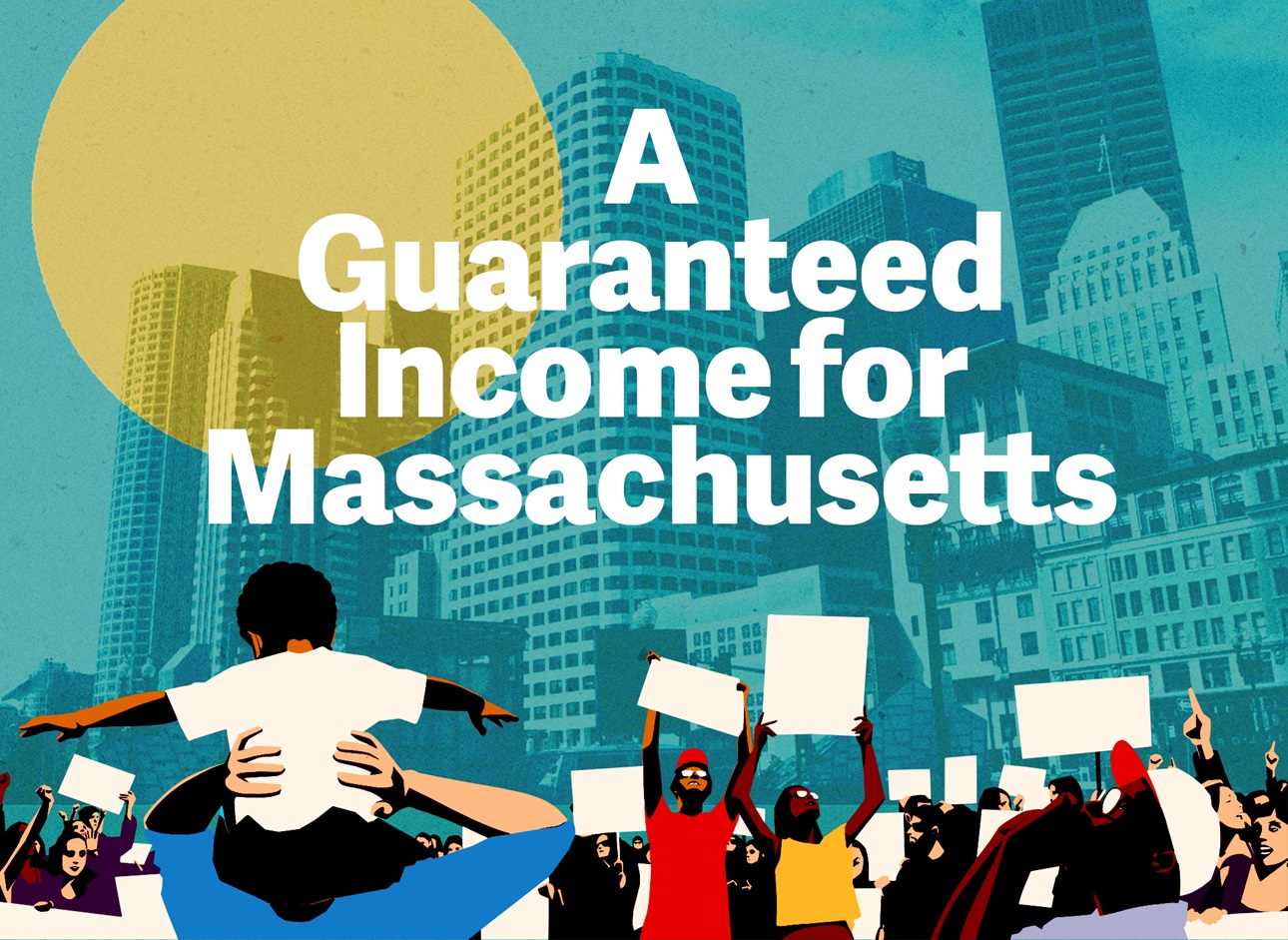As the research center at the
Boston Foundation, Boston
Indicators' stock in trade is
timely, clear and accessible data
analysis that reveals new connections
or confirms observations about
trends and dynamics in our region.
With two recent reports and
webinars, it proposes some bold
solutions to intractable problems.
Through A Guaranteed Income
for Massachusetts, Indicators looks
to the future, using data not just to
predict trends but to propose real
action to counter a current problem.
Authored by Boston Indicators, the
Massachusetts Budget and Policy
Center and the Economic Security
Project, the report suggests that cash
is one of the most effective ways to
help families stuck in cycles of
poverty. Contrary to fears that people don’t
deserve “something for nothing” and quit
working if given a monetary boost, numerous
pilot programs and experiments where modest
direct payments have allowed working poor
people to finally achieve goals of stability,
advancement and self-sufficiency.
But how to introduce something like a
guaranteed basic income in Massachusetts?
The reforms to support Massachusetts’ lowest
income residents will require additional
revenues, which could come from progressive
adjustments to the tax code. Not without
challenges, but the benefits of greater stability,
health and achievement for folks on the lower
economic rungs will reverberate throughout
the economy and society. Trevor Mattos urged
daring and reminded us, “Massachusetts has led
on big change before [think marriage equality…]. This report offers a pathway for Massachusetts to be a leader in this.”
The cost and availability of housing in Massachusetts is a pain point for many working families. Greater Boston’s traffic is among the worst in the country. Building more affordable housing near transit stations could address both those problems—but to date, it’s not happening. The Boston Indicators and Brookings report Zoned Out: Why Massachusetts Needs to Legalize Apartments Near Transit, posits that a single statewide change to zoning restrictions near transit hubs could enable the development of moderately-priced housing in some of the region’s most in-demand communities, alleviating Greater Boston’s housing affordability crisis.
Authored by Boston Indicators and Brookings Institution, the report suggests that the wrong level of government—cities and towns, rather than the state—is making too many of our important policy decisions. The report offers one concrete model for how the state can take a more proactive role in setting land use regulations. It shows how legalizing apartments near transit could enable infill redevelopment around suburban community rail stations by converting parcels currently used as single-family homes into moderate density multi-family lots.
Commenting on both reports, Boston Indicators Senior Director Luc Schuster said, “These are not the only good ideas for big solutions, but we hope they will help contribute to the growing conversation.” He added, “Without specific ideas on the agenda, we’re not going to be able to act and move the lever.”




